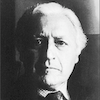- 02 Oct 2012 05:26
#14071815
It is simply flabbergasting how anyone could argue the USSR was in any way "Internationalist" when it explicitly declared "rootless cosmopolitanism" as its enemy.
From the Russian Wikipedia article:
Великая Отечественная война вызвала мощный подъём патриотических чувств, и прежде всего чувств русского патриотизма, которые в новых условиях уже не отвергались, а наоборот — поддерживались официальной пропагандой. Последний должен был включать в себя в политическом аспекте «гордость за свою страну, безусловную лояльность государству в лице руководителей», а в экономическом — «ударный труд в условиях уравнительного распределения и потребления для основной массы населения». Эта идеология, с точки зрения руководства страны, должна была стать главным элементом политической позиции советского гражданина.
The Great Patriotic War led to a strong rise of patriotic feeling, first and foremost feelings of Russian patriotism, which in newfound conditions were not suppressed, but were rather supported by official propaganda. It was the duty of every citizen to trigger in themselves "pride in their country, and unconditional loyalty to the government", and economically "fruitful labor in the context of equal distribution and consumption for the greater part of the population". This ideology, from the point of view of the Soviet leadership, was to become the leading element of the political positions of the Soviet citizen.
При этом, по мнению ряда исследователей, в послевоенную эпоху идеология всё более окрашивается «в цвета русского национализма и великодержавия».[2][6]
Also, in the opinion of a number of researchers, the post-war era was characterized by an ideology more "in the color of Russian nationalism and national power"
Первым шагом, обозначившим новый курс, стал тост Сталина на приёме в Кремле 24 мая 1945 года. В нём он отметил роль русского народа как руководящей силы, назвал его «наиболее выдающейся нацией из всех наций, входящих в состав Советского Союза». Это дало толчок соответствующей кампании в прессе. Утверждалось, что русскому народу, «старшему и могучему брату в семье советских народов», довелось взять на себя главную тяжесть борьбы с гитлеровцами, и он с честью исполнил эту великую историческую роль. Без помощи русских «ни один из народов, входящих в состав Советского Союза, не смог бы отстоять свою свободу и независимость, а народы Украины, Белоруссии, Прибалтики, Молдавии, временно порабощённые немецкими империалистами, не могли бы освободиться от немецко-фашистской кабалы».
The first step was the toast of Stalin on 24 May 1945. In it, he noted the role of the Russian nation as the leading power of the country, calling it "the most exemplary nation of all the nations of the USSR". This was followed by an analogous campaign in the Soviet media. It was asserted that the Russian nation, as "the oldest and bravest brother in the family of Soviet peoples" played the key role in the fight against the Hiterlites, and with honor fulfilled this historical mission. Without the help of the Russians, "not one of the nations of the USSR would be able to attain freedom and independence, and the peoples of Ukraine, Belarus, the Baltics, and Moldavia, temporarily overrun by the German imperialists, would not have been able to free itself from the fascist yoke".
Тогда же, в 1946—1948-м, были приняты партийные постановления, означавшие резкое ужесточение политики в области идеологии и культуры. Первым из них стало постановление «О журналах „Звезда“ и „Ленинград“» (14 августа 1946 г.). Оно обличало напечатанные в журналах «произведения, культивирующие несвойственный советским людям дух низкопоклонства перед современной буржуазной культурой Запада». Постановление «О репертуаре драматических театров и мерах по его улучшению» (26 августа 1946 г.) требовало запретить постановки театрами пьес буржуазных авторов, открыто пропоповедующих буржуазную идеологию и мораль.
From 1946-1948, there was an acute hardening of ideological-cultural politics. One of its first manifestations was "On the journals 'Star' and 'Leningrad'" (14 August 1946). It criticized "works, culturally alien for the Soviet people, in the spirit of low-bowing towards modern bourgeois culture of the West". It demanded a ban on theater works written by bourgeois authors, openly preaching bourgeois ideology and morality.
Сталин заказал Константину Симонову роман на тему «дела КР» и «советского патриотизма» (Симонов написал пьесу «Чужая тень»), заявив при этом:
Если взять нашу среднюю интеллигенцию, научную интеллигенцию, профессоров, врачей, у них недостаточно воспитано чувство советского патриотизма. У них неоправданное преклонение перед заграничной культурой. Все чувствуют себя ещё несовершеннолетними, не стопроцентными, привыкли считать себя на положении вечных учеников. Это традиция отсталая, она идет от Петра. <…> Сначала немцы, потом французы, было преклонение перед иностранцами <…> засранцами[11].
Stalin told Constantine Simonov to write a novel on "Soviet patriotism" (Simonov later wrote "Alien Shadow"), asserting:
"If we take our middle intellegentsia, scientific intellgentsia, professors, doctors, they have insufficient feelings of Soviet patriotism. They profess an unjustified fawning over foreign culture. Everyone feels themselves not "of age", not "100%", they are used to seeing themselves in the position of permanent students [of the West]. This tradition dates back to Peter I ... First the Germans, then the French, there was always a spirit of low-bowing towards fucking foreigners"
В этих условиях начали делаться заявления об опасности «космополитизма». Впервые об этом было заявлено в статье Отто Куусинена «О патриотизме» сразу же после тоста Сталина (статья опубликована под псевдонимом Н. Балтийский в № 1 журнала «Новое время», июль 1945 года). Согласно Куусинену, космополитизм, в отличие от патриотизма, органически противопоказан трудящимся, коммунистическому движению. Он свойствен представителям международных банкирских домов и международных картелей, крупнейшим биржевым спекулянтам — всем, кто орудует согласно латинской пословице «ubi bene, ibi patria» (где хорошо, там и отечество).
In these circumstances, the term "cosmopolitanism" was first used. First came an article by Otto Kusin "On Patriotism". According to Kusin, cosmopolitanism, unlike patriotism, is naturally opposed by the working class and by the communist movement. It is the creed of international banking structures and international cartels, large stock firms - everyone, who acts in accordance with the old Latin proverb "ubi bene, ibi patria", (where it is good, there is the fatherland).
В январе 1948 года было впервые употреблено знаменитое впоследствии выражение «безродный космополит». Оно появилось в выступлении А. А. Жданова на совещании деятелей советской музыки в ЦК КПСС. Жданов заявил буквально следующее:
«Интернационализм рождается там, где расцветает национальное искусство. Забыть эту истину означает… потерять своё лицо, стать безродным космополитом».[25]
In January 1948, for the first time the term "rootless cosmopolitanism" was used. A. A. Zhdanov, speaking at a meeting of Soviet musicians at the Central Committee of the Communist Party of the Soviet Union, announced:
"Internationalism is born there, where flowers national culture. Forgetting this fact means losing face, becoming a rootless cosmopolitan."
В марте того же года другой идеологический руководитель, Г. Ф. Александров опубликовал в «Вопросах философии» установочную статью «Космополитизм — идеология империалистической буржуазии», в которой объявил космополитами разом Милюкова, Бухарина, Троцкого, левых эсеров и левых коммунистов, наконец, власовцев и всех, перешедших на сторону немцев — таким образом термин приобрел особо зловещий оттенок, становясь синонимом понятий «изменник Родины», «контрреволюционер» и «враг народа».[2]
In March of that year, another ideological organizer, G. F. Aleksandov published in "Questions of Philosophy" an article by the name of "Cosmopolitanism - the ideology of the imperialist bourgeois", in which "cosmopolitans" were called Milyukov, Bukharin, Trotsky, the Left-SRs and Left-Communism, and the Vlasovites - thus tainting the term with very negative association, making it a synonym of "counterrevolutionary" and "enemy of the people".












 Hilarious. A propoganda museum built by people who haven't lived in Ukraine for generations is more reputable than the opinion of actual Ukranians, whose relatives suffered in the famine, who overwhelmingly do not regard the Holodomor as genocide.
Hilarious. A propoganda museum built by people who haven't lived in Ukraine for generations is more reputable than the opinion of actual Ukranians, whose relatives suffered in the famine, who overwhelmingly do not regard the Holodomor as genocide. 

 - By Tainari88
- By Tainari88 - By wat0n
- By wat0n